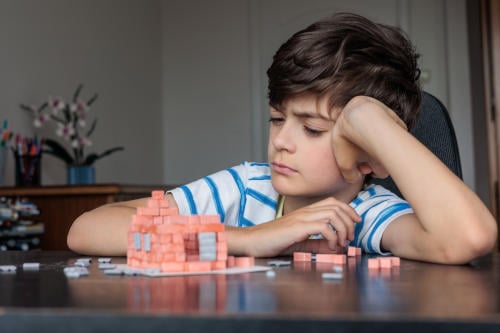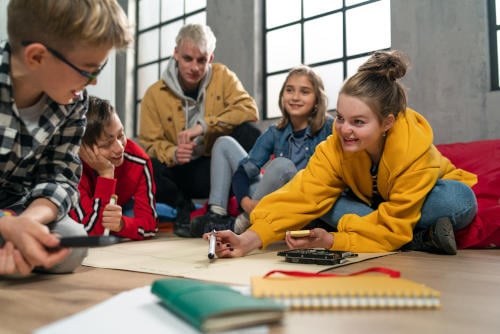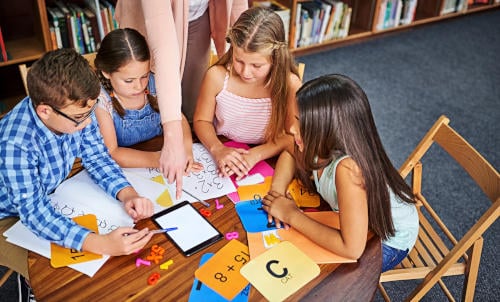Dyspraxia, or DCD (Developmental Coordination Disorder), can affect a person’s co-ordination and motor skills. This can translate into difficulties in these areas: movement, writing, working memory, emotional well-being and social skills.
For Dyspraxia Awareness Week, we are focusing on struggles that children with dyspraxia might face and offering a range of ideas and strategies to help them succeed.
Which Challenges can be associated with Dyspraxia?

“Dyspraxia is a disorder which interferes with the ability to plan and execute skilled or non-habitual motor tasks. This often includes tasks like writing, tying shoelaces and physical activities.” https://oxfordspecialisttutors.com/dyspraxia-what-it-is-challenges-how-to-overcome-it/
Fine Motor Skills
Dyspraxia affects coordination, so a child’s handwriting can present differently. Manipulating tools such as rulers and scissors can also be tricky. It might take a dyspraxic child a bit longer to get dressed, which can exacerbate feelings of stress or low self-worth.
Organisation
Children with dyspraxia may find it difficult to keep track of equipment or struggle with time management and meeting deadlines. Dyspraxia can also affect work presentation; for example, dyspraxic learners may produce ‘untidy’ work, and this can lower their morale.
Sequencing
Dyspraxic students may have a reduced ability to follow step-by-step instructions. This learning difference can cause individual steps to blur together, so students may benefit from further clarification.
Memory
Children with dyspraxia may struggle to remember and recall information; this sometimes influences their problem-solving skills.
Social interaction
Dyspraxia can influence verbal and physical interactions, which can be seen as differences in the learner’s speech and coordination.
A child with dyspraxia may experience recurring blows to their self-esteem, so a supportive, understanding learning environment is crucial. We’ve suggested several strategies which can help:
Strategies Which Can Benefit Learners with Dyspraxia

SEND Support Groups on Social Media
Parents and carers can connect through dedicated dyspraxia and SEND Facebook support groups to share invaluable experiences.
These platforms allow you to reach out for support with your questions about dyspraxia. Facebook has various dyspraxia groups.
Below we’ve shared accounts from two families. These cover real-life scenarios and strategies which were successfully used to help dyspraxic children:
Dyspraxic mother shares how school helped her dyspraxic son
“It is important schools realise we’re all different. I had no diagnosis and no support; looking back, I don’t think support would have changed my outcomes. I went to university, have a degree and a postgraduate diploma, have had a career and a fulfilling life. My son, however, benefited from support and a diagnosis. At primary school, he learned to touch-type. He was also introduced to Yoro pencils and pens, had a writing wedge, and a sit-and-move cushion.
He joined a social skills group and attended a gym club for kids with additional needs during registration. He struggled with lunch in the school hall, so attended a lunch club where small groups of children could eat with support staff.”
From this example, it is evident that this child’s journey was cushioned because the school tuned into his difficulties and made accommodations.
His mum outlined further adjustments made by his school: “At secondary school, he continued with a social group (in Year 7) and used a laptop from Year 8 through to his exams (except for Maths). He had weekly handwriting support and received extra help across the curriculum for his GCSEs. He also had 25% extra time in his exams.”
Parents share dyspraxia strategies for home and school
“We allowed our daughter to experiment with many sports and activities, particularly swimming and gymnastics. As she got older, we gave her independence with crafts and cooking.
“We still ask her to talk through her plans beforehand, and point out potential hazards, asking her how she can make it ‘safer’. For example, if she’s making a cup of tea, she puts a tea towel in front of her on the worktop; if the water spills it soaks up before it would burn her…lots of small adjustments make the biggest difference…”
A third parent stated:
“My child, (now 12), was held back a year at school; she finds Maths and PE the hardest. She has no concept of patterns or gameplay. The only PE lesson she enjoyed was circuits because she knew what to do at each base, rather than predicting where balls would be thrown or kicked by others.
In primary school, it was noticed she had wonderful ideas, but getting them onto paper was extremely hard. The school introduced a laptop; she included a lot more ideas due to not having to write them down. When she did write, she was given a writing slope. In senior school, she currently receives support from a teaching assistant who breaks down the work into smaller chunks for her to process.
Uniform is tricky. She cannot do laces, buckles, zips, ties, etc. It is extremely hard to find Velcro school shoes for bigger feet!
For PE, she changes in a cubicle because she lost her kit so many times; they said it would be easier for her to know what’s hers and pack it all away.
School is exhausting. When she gets home, she takes herself off to lie on her bed for a good hour to recharge.”
Additional Strategies that can Support Dyspraxic Learners

Maths Resources
English Resources
Co-ordination Activities
One final quote from the group sums up the difference that accommodations at school can make:
“Our school has been great with our son; the teacher did a lot of research. I think that down to her hard work, the school now has more strategies to help even more children. They have really helped him have a positive experience in school so far.”
Useful Websites:
https://www.dyspraxiacollective.co.uk/information-sheets/
https://inclusiveteach.com/2023/08/29/supporting-children-with-dyspraxia-in-the-classroom-an-in-depth-guide-for-teachers/ https://www.understood.org/en/articles/6-things-i-wish-people-knew-about-parenting-a-child-with-dyspraxia https://dyspraxiauk.com/dyspraxia-foundation
Please note: The information provided within this blog, by SENsational Tutors, is for general information purposes only. We appreciate that every person is unique and any advice/experiences mentioned within the content of each blog may not be reflective of your own personal experience. All information on the site is provided in good faith and is for educational informational purposes only. It is not a substitute for professional advice. Before taking any actions based upon such information, we encourage you to consult with appropriate professionals.




